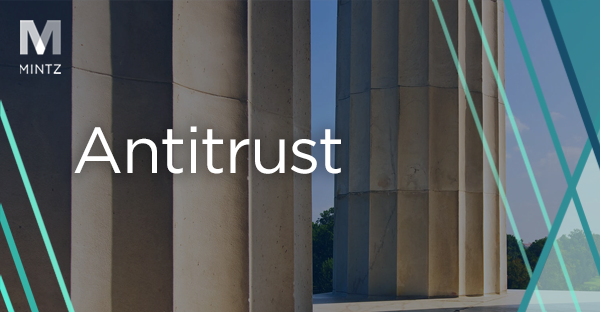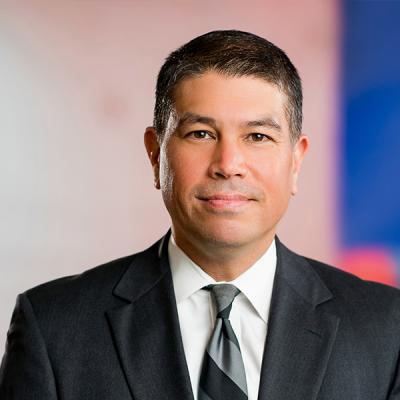Judge Rules Content Generated Solely by AI is Ineligible for Copyright — AI: The Washington Report
Welcome to this week’s issue of AI: The Washington Report, a joint undertaking of Mintz and its government affairs affiliate, ML Strategies.
The accelerating advances in artificial intelligence (“AI”) and the practical, legal, and policy issues AI creates have exponentially increased the federal government’s interest in AI and its implications. In these weekly reports, we hope to keep our clients and friends abreast of that Washington-focused set of potential legislative, executive, and regulatory activities.
In this issue, we discuss the recent ruling in Thaler v. Perlmutter issued by the US District Court for the District of Columbia. Our key takeaways are:
- In this ruling, the court held that an AI-generated “work created absent any human involvement” is ineligible for copyright protection. “Human authorship is a bedrock requirement of copyright,” the court asserted.
- Plaintiff Stephen Thaler sought to copyright a piece of artwork generated by an AI model he owned. Though Thaler argued that he should own the copyright of the artwork “as a work-for-hire to the owner” of the AI model, the court held that “the image autonomously generated by plaintiff’s computer system was never eligible for copyright…”
- While affirming the United States Copyright Office’s interpretation of the human authorship requirement of the Copyright Act, this ruling leaves unresolved the important question of the degree of human involvement necessary to qualify an AI-generated work for copyright.
Case Raises Questions About Relationship of US Copyright Law to AI-Generated Content
On August 18, 2023, Judge Beryl A. Howell of the DC District Court ruled that “a work generated entirely by an artificial system absent human involvement” is not eligible for copyright protection. In this decision, the court has embraced the United States Copyright Office’s (“USCO” or “Copyright Office”) interpretation of the human authorship requirement of the Copyright Act, as discussed in last week’s newsletter. But as Judge Howell herself notes, questions still remain regarding the degree of human involvement necessary for an AI-generated work to qualify for copyright.
AI For-Hire: Thaler’s Argument in Favor of Copyright Protection for AI-Generated Works
The plaintiff Stephen Thaler owns “Creativity Machine,” a computer system that generated a piece of art.[1] Thaler then applied for the copyright of the work. Though Thaler listed the computer program itself as the author of the work, he argued that he should own the copyright of the artwork “as a work-for-hire to the owner of the Creativity Machine.”
However, since the work “lack[ed] the human authorship necessary to support a copyright claim,” the Copyright Office denied Thaler’s application. Disputing the Copyright Office’s human authorship requirement, Thaler requested reconsideration of his application. Thaler argued that AI should be “acknowledge[d]…as an author where it otherwise meets authorship criteria, with any copyright ownership vesting in the AI’s owner.”
Following another round of requests for reconsideration and denials, Thaler challenged the Copyright Office’s decision in court.
The Copyright Office’s Interpretation of the Human Authorship Requirement Affirmed
In reviewing Thaler’s position, the judge determined that “the single legal question presented here is whether a work generated autonomously by a computer falls under the protection of copyright law upon its creation.” For the court, the answer to this question is a straightforward no.
“United States copyright law protects only works of human creation,” the court ruled. “Human authorship is a bedrock requirement of copyright.” On this basis, the court held that the “defendants are correct that the Copyright Office acted properly in denying copyright registration for a work created absent any human involvement.” For the court, the artwork generated by the Creativity Machine did not merit copyright protection.
The court’s interpretation of the human authorship requirement accords with that of the Copyright Office. As discussed in our previous newsletter, March 2023 guidance from the USCO states that since “copyright can protect only material that is the product of human creativity,” if “a work’s traditional elements of authorship were produced by a machine, the work lacks human authorship and the [USCO] will not register it.”
Aside from upholding the Copyright Office’s interpretation of the Copyright Act, the court did acknowledge that outstanding questions regarding AI authorship and copyright remain. Advances in generative AI, noted Judge Howell, “will prompt challenging questions regarding how much human input is necessary to qualify the user of an AI system as an ‘author’ of a generated work, the scope of the protection obtained over the resultant image, how to assess the originality of AI-generated works where the systems may have been trained on unknown pre-existing works, how copyright might best be used to incentivize creative works involving AI, and more.”
In Thaler’s case, however, the court reasoned that few of these pressing questions apply. The Copyright Office based its denial of Thaler’s application “on the fact the application presented that plaintiff played no role in using the AI to generate the work, which plaintiff never attempted to correct.” Since “the image autonomously generated by plaintiff’s computer system was never eligible for copyright … none of the doctrines invoked by plaintiff,” including the work-for-hire provisions of the Copyright Act, “conjure up a copyright over which ownership may be claimed.”
Conclusion: Increased Impetus for Congressional Action Regarding AI and Copyright?
Following the announcement of the decision, Thaler’s attorney Ryan Abbot stated that he and Thaler “respectfully disagree with the court’s interpretation of the Copyright Act.”[2] Undaunted by the unfavorable ruling, Thaler plans to appeal Judge Howell’s decision. No matter the outcome of any appeal, outstanding questions regarding the relationship of US copyright law to AI-generated content remain.
While some outlets have reported this decision as finding that AI-generated works are outright ineligible for copyright, the ruling is actually more nuanced. As stated at the beginning of this article, the district court’s decision affirms that “the Copyright Office acted properly in denying copyright registration for a work created absent any human involvement.”[3] Decisions like the district court’s August 18 ruling in Thaler v. Perlmutter make it less likely that work created solely by generative AI will receive copyright protection. However, this ruling leaves open the vital question of how much human involvement is necessary to make such a work eligible for copyright protection.
As the Copyright Office put the matter in its Zarya of the Dawn letter, the “Office will register works that contain otherwise unprotectable material that has been edited, modified, or otherwise revised by a human author, but only if the new work contains a ‘sufficient amount of original authorship’ to itself qualify for copyright protection.” The new battle lines over AI and copyright will likely center on how a “sufficient amount of original authorship” should be determined with regard to work created in part by generative AI.
It remains to be seen whether Congress will attempt to draw the line or articulate a standard in any potential legislation. We will continue to monitor, analyze, and issue reports on these developments.
Endnotes
[1] In a June 2023 newsletter, we discussed Thaler’s case against the United States Patent and Trademark Office, Thaler v. Vidal. This case, Thaler v. Perlmutter, is separate.
[2] Mintz AI attorney Drew DeVoogd spoke to Dr. Stephen Thaler and Professor Ryan Abbott in an October 2021 edition of the Mintz EXCLUSIVE RIGHTS: Intellectual Property podcast.
[3] Emphasis added.
Authors
Bruce D. Sokler
Member / Co-chair, Antitrust Practice
Alexander Hecht
ML Strategies - Executive Vice President & Director of Operations
Christian Tamotsu Fjeld
Senior Vice President





